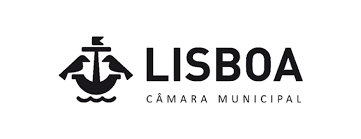

Lisbon to Host Fast-Track Cities 2020 Conference
Conference’s High-Level Panel to Feature Evidence-Based Approaches to Drug Policy
LISBON, Portugal (January 17, 2020) – The Camara Municipal de Lisboa and the International Association of Providers of AIDS Care (IAPAC) hosted a press announcement and a community-led panel discussion today about the need for Fast-Track Cities to pursue evidence-based approaches to drug policy to curb new HIV infections while respecting the human rights of people who use drugs.
The 2019 UNAIDS Drugs Report acknowledged that while new HIV infections among adults worldwide declined by 14% between 2011 and 2017, there has been no decrease in the annual number of new HIV infections among people who inject drugs. Yet, between 2008 and 2017, there was a 93% decrease in HIV cases among people who inject drugs in Portugal, according to the Portuguese National AIDS Agency, a reduction to which new harm reduction policies contributed.
The announcement and panel discussion took place during a City Hall event where Lisbon Mayor Fernando Medina announced his city would play host later this year to local stakeholders from more than 300 cities and municipalities accelerating the end of their urban HIV, tuberculosis (TB), and viral hepatitis epidemics by 2030. The Fast-Track Cities 2020 conference, taking place September 7-10, 2020, is expected to convene more than 1,000 delegates from 300+ current and numerous prospective Fast-Track Cities in every region of the world.
In announcing the Fast-Track Cities 2020 conference, Mayor Medina also said the focus of the conference’s high-level panel will be on drug policies and harm reduction. The high-level panel will consist of Mayors and other elected officials, as well as public health leaders. The focus of the Fast-Track Cities 2019 conference’s high-level panel in London was on health inequalities, with Mayor Sadiq Khan chairing the panel. Lisbon’s Mayor Medina will do likewise at the Fast-Track Cities 2020 conference.
“Drug policies need to be focused on reducing harm among people who use drugs, instead of furthering the stigma associated with the criminalization of drug use. The expansion of harm reduction services in Lisbon and in Portugal has made a significant impact in reducing the numbers of new HIV cases in people who inject drugs,” said Mayor Medina. “We are proud to highlight Lisbon’s experience in transforming public health at the Fast-Track Cities 2020 conference.”
In his welcome remarks at today’s event, IAPAC President/CEO Dr. José M. Zuniga welcomed Mayor Medina’s wish to focus attention on rights-based drug policies and harm reduction interventions for people who use drugs, adding that it is at the city and municipal levels where the most efficient collaboration takes place between civic authorities, health services, and communities of people who use drugs.
“Where sound drug policies and harm reduction services are in place, such as in Portugal, we have seen significant decreases in HIV infections among people who inject drugs and their partners,” said IAPAC President/CEO Dr. José M. Zuniga. “Harm reduction shows its best results when it is planned at municipal and national levels and where local stakeholders have a degree of autonomy in terms of organizing services that best serve the needs of their key populations,” Dr. Zuniga explained.
A Portugal-focused panel discussion capped off today’s Fast-Track Cities event, covering issues ranging from budgeting for harm reduction to engaging communities of people who use drugs. The panelists included Isabel Aldir, Director of Portugal’s National Program for HIV/ AIDS and Viral Hepatitis; Luís Mendão, President of the Grupo de Ativistas em Tratamentos (GAT); Andreia Pinto Ferreira, General Director of Ser+; Elsa Belo, Technical Director, Programa de Substituição em Baixo Limiar de Exigência at Ares do Pinhal; and João Goulão, General Director of the Intervention on Addictive Behaviors and Dependencies (SICAD) at the Portuguese Ministry of Health.
The Fast-Track Cities 2020 conference is organized by IAPAC, UNAIDS, and other partners. For more information, please visit: https://www.iapac.org/conferences/fast-track-cities-2019/fast-track-cities-2020/





